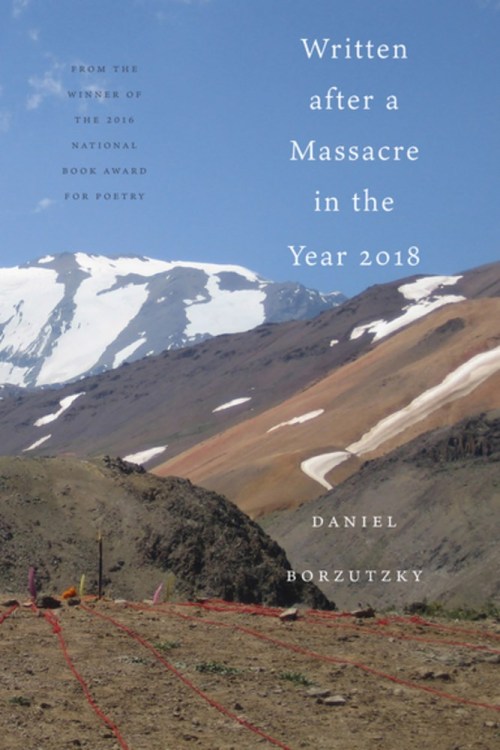[ad_1]
Daniel Borzutzky’s newest collection of poetry, Written After a Massacre in the Year 2018, examines specific violence in America, explicit within the global economic order. This collection, like his 2016 National Book Award-winning The Performance of Being Human, and Lake Michigan, examines a psychogeography of movement. There’s Pittsburgh, Chile, the American Middle West. Bodies move across borders. Bodies are restrained and confined to cages. There are fissures and walls. His fascinations include refugees displaced by the economic world consensus and the very real violence that springs from that consensus.
In the past, he’s spoken openly about the way Chile’s history — with social democracy, undermined by the U.S. backed Pinochet coup, and the hyper-economics of the Chicago Boys — set the stage for the current paradigm. This collection draws examples from the general violence that’s occasioned on people at the hands of state actors and corporations, to the terrible and sensational violence of Squirrel Hill, Pittsburgh, 2018.
Borzutzky’s language reflects the politics of his content; he is a contemporary poet of the lyric. His poems are spoken. He employs an open field of referents that expands outwards. Themes emerge within the field, folds. The poet’s voice has echoes of Waldman and Olson. The poems are at times conversational and incantatory: “I met a slaughterer at the wall...Should I have brunch, or should I redistribute the wealth?”
He slips in overwhelming examples of violence into this mundane tone: “He thinks the boy’s cell phone is a gun… It’s just that when he starts shooting the chemical compounds in his brain trigger a reflexive echo.”
Many of his best lines mirror the juxtaposition of Ginsberg’s hydrogen jukebox presented, almost koan-like, as quips: “I tried to write a novel but instead I wrote a seven page letter to my Grandma.” Or wry observations: “My colleague dresses up as a Confederate soldier in order to reenact the Civil War.”
This collection is not an elegy like “Kaddish for Naomi Ginsberg;” it’s less explicit. It is not a single incantatory look at one event. It’s essentially a way of working through the violence that’s persistent today, while still trying to acknowledge a specific terrible act of violence. Borzutzky connects the massacre at the Tree of Life synagogue, his childhood temple, with the people that are brutalized through ongoing dehumanizing treatment of refugees. He situates this terrible killing within a context. Our brutal order creates these violent extremes. And he argues that social movements that value the liberation of Black, Brown, and Jewish people work to liberate the broader society. Valuing human lives is the first step to becoming a less violent society. This collection is part of an expanding practice. It’s critical and ambitious, most damning in its understatement and reflection.

POETRY
Written After a Massacre in the Year 2018
By Daniel Borzutzky
Coffee House Press
Published March 2, 2021

[ad_2]
Source link
